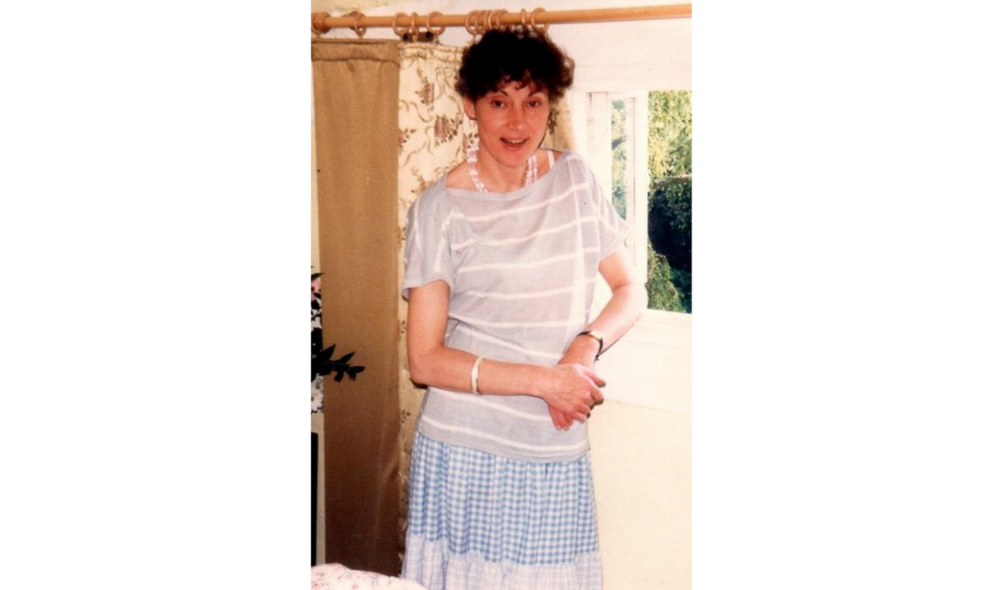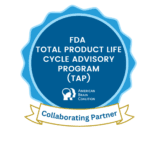I had never heard of the word Ataxia and neither had my GP.
My initial diagnosis didn’t take very long but I was not told I had Ataxia; the neurologist told me I had cerebellar degeneration. When I googled it, I discovered the word Ataxia. I emailed the Neurologist to confirm and he told me that my diagnosis is now generally known as Cerebellar Ataxia. That was 2004.
Having carried out a brain MRI and lumbar puncture, he said he was 95% sure that I did not have MS. The neurologist explained that I had a shrunken cerebellum and had probably had this since birth. I mentioned that I was a premature baby but he didn’t know whether this was significant. He told me that I had a tracking problem from back brain to front brain and this was like being drunk without the drink.
I have always been ‘unstable’ but have coped without knowing I had a problem. It was around my late 50’s that I started to have falls for no apparent reason. My big toe was growing diagonally and I thought this was the problem. I consulted my GP and eventually had surgery to straighten my foot. Metal pins were inserted to keep the bones growing straight. It was during recovery of this surgery that the physio noticed my unusual gait and told me to see my GP and this led to my diagnosis.
When we moved from Essex to Suffolk, I was referred to another neurologist who thought I may have a rheumatoid condition. Consultation with Rheumatologist led to a false diagnosis of Lupus. I was treated with a drug for a year before Lupus diagnosis was refuted. I presented the next neurologist with Ataxia UK guidelines and explained why it was important to get a definitive diagnosis. Endeavoring to discover which type of Ataxia I had, more tests were carried out but to no avail.
I managed to get referred to London Ataxia Clinic but even more tests did not reveal the cause or type of my Ataxia. I heard from a member of our support group that he was seeing a neurologist experienced in the field of Ataxia quite local to me. Not wanting to do any more trips to London, [a 2-hour drive] I looked up Dr. De Silva on the internet. I emailed him and he said if I obtained a letter of referral from my GP he would see me at his Braintree Clinic. This I did and Dr De Silva saw me at 6-month intervals. Having studied my case and understood my decision not to undergo anymore testing, he suggested neurophysio.
I now attend Physio classes and am striving to achieve optimum ability and maintain mobility. My last appointment was on Zoom. I exercise for 10 minutes first thing each morning on my vibroplate [to 1950’s music] and then tai chi with YouTube on my bedroom tv. I also go for walk in the garden when I top up birdfeeders each day. I have learned not stand without support and I also pace myself and rest once or twice a day. I use hypnotherapy recordings to help me relax.
The initial diagnosis left me bewildered and wondering how much I would deteriorate. Thankfully when I retired as word processing secretary, I continued to use my keyboard skills on a desk top computer at home and have gradually extended these skills to become an avid user of social websites and online auction sites and other online shopping options. I now have a laptop on a table which swivels between sofa recliner and executive chair at our dining table. My husband has installed an island base unit against the kitchen wall so I can lean on my elbows to perform various tasks but he does the cooking.
I have been coordinator of Ataxia UK local support group since 2006 but I am standing down at the end of this month. I am now an Ataxia UK Volunteer befriender. Ataxia UK has been my salvation and although I am now 78, I am happy to be part of their volunteer service.
I haven’t really come to terms with my diagnosis. When I wake each morning I feel reasonably ‘normal’ until I try to sit up although my muscles are painful. My progression has been so gradual that I have adapted to my condition incrementally. I rarely have problems with speech unless I am very tired and then I cannot form sentences. My speech has always been quiet so I have to make an effort to project my voice which is tiring.
I did get a home assessment when they supplied aids such as bed post, toilet surround, perching stool, bath lift and grab rails fitted where needed. The walking aid offered was a zimmer frame so I opted to buy a rollator from eBay. These ‘aids’ although not crucial to my needs, help conserve energy and coping with fatigue. I was never told that I would feel extreme fatigue or muscle stress [low level pain]. I also have a power chair for long distances but haven’t used it since lockdown.
Physio encourages me not to use aids indoors but as well as conserving energy, they save me falling. I have broken both wrists and a finger on three different occasions when I have fallen not to mention a cut lip and cut on my nose! I am now extremely careful not to fall.
Falls usually occur due to lack of concentration… my mind is aiming for one direction but my foot goes another direction. Consequently, I lose my balance. Sometimes it is muscle spasm that causes me to fall…this is random but usually when muscles are cold. My legs go rigid and I stagger and fall backwards. The effort of walking is, apparently, equivalent to a fit person doing press ups so the fitter I am, the further I am able to walk. I use a 4-wheeled rollator to steady me.
Eating healthily and exercising is the only thing you can do to help yourself. Some drugs help with muscle spasm and pain. I had my car converted to hand controls which is a good step to take if you are a driver. I don’t drive anymore…at 78 years of age I don’t feel confident at the wheel and it is an unnecessary expense, so my husband drives me everywhere.
I have always had a reasonably healthy diet and suspect this has stood me in good stead to cope with this condition. It is obviously preferable to keep off excess weight which is easier said than done. I have small portions but do find it difficult to give up sweet things. I take vitamin and mineral supplements.
My advice to newly diagnosed would be don’t reject the use of ‘aids’, try to keep weight down, and above all attend support groups. Preferably local groups, otherwise online ones. This avoids the feeling of isolation.
My advice to friends and relatives would be to take care when greeting a person with Ataxia…handshakes and cheek kisses are quite nerve-racking and even a hug [and sudden release] can leave one off balance.
Read Other Member Stories

Ad van der Wegen
Hello, my name is Ad, I am 62 years old and I live in the Netherlands. I am married with Marina and we have a daughter Dorith. Since September 2023 Read More…
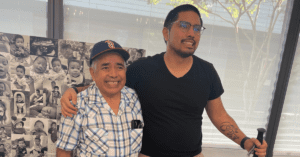
Sly F
Hello my name is Sly. I’m 33 years old. Started to show symptoms at age 21, diagnosed at age 25. Fun fact: before I got diagnosed is that I hiked Read More…

Lillian O’Connor
I was diagnosed with Gluten Ataxia Disease 2 years ago. I went to every specialist and checked myself into the hospital for tests. I had a brain MRI. Every doctor Read More…
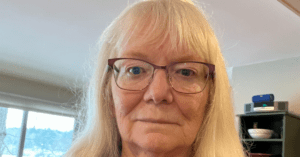
Marybeth Barker
Shortly after returning from a once in a lifetime vacation to Turkey in 2010, at age 58, I began to experience odd neurological symptoms and profound exhaustion. I felt like Read More…
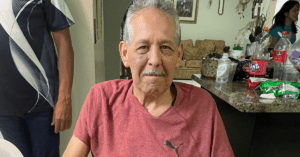
Neyveth Duarte
My name is Neyveth Duarte and my dad was officially diagnosed with Ataxia earlier this year. My dad is my hero and he is going through a really hard time Read More…
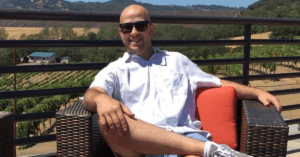
Adam Nelson
I grew up in a small & rural town of about 3,500 people in central Minnesota. I was raised in a blue-collar middle class home, with both loving parents and Read More…


